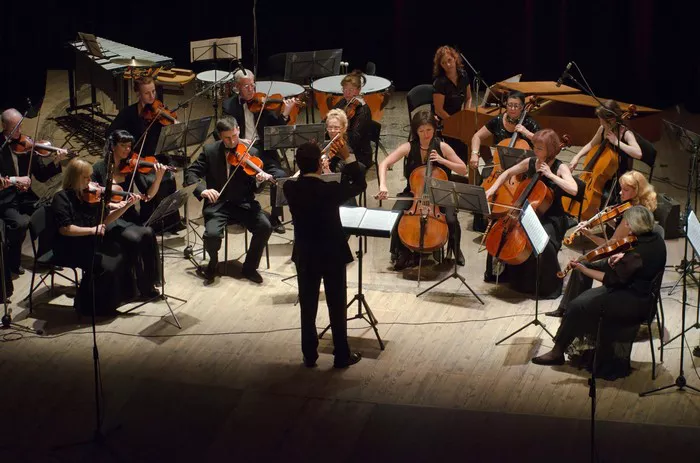Classical music, with its rich tapestry of harmonies, melodies, and intricate compositions, has stood the test of time as a timeless art form. It has produced legendary composers who have shaped the course of musical history. One such luminary figure, often overshadowed by his contemporaries, is Joseph Leopold Eybler. To comprehend his significance, it is essential to delve into the world of classical music and explore the nuanced brilliance that defines this genre.
Classical music, characterized by its formal structure, emotional depth, and intricate instrumentation, spans a vast array of styles and periods. It emerged during the late 17th century and persisted until the early 19th century, featuring iconic composers like Mozart, Haydn, and Beethoven. The genre is celebrated for its adherence to structural principles, often manifesting in symphonies, sonatas, operas, and chamber music.
Understanding Joseph Leopold Eybler
In the midst of this musical renaissance, Joseph Leopold Eybler, born on June 8, 1765, in the Austrian town of Schwechat, emerged as a notable composer and contemporary of Mozart and Haydn. Despite not attaining the same level of recognition as his peers, Eybler’s contributions to classical music are significant and warrant exploration.
Eybler received his early musical education in Vienna, a city that served as a melting pot of artistic innovation during the Classical period. His talent did not go unnoticed, and he soon found himself under the tutelage of renowned composers, including Mozart himself. This mentorship played a pivotal role in shaping Eybler’s musical identity and nurturing his compositional skills.
Eybler’s career unfolded against the backdrop of Vienna’s vibrant musical scene, where he served as a choirboy at St. Stephen’s Cathedral and later as a court musician. His compositions, often characterized by a delicate balance of lyricism and structural sophistication, showcased his mastery over the classical idiom.
Joseph Leopold Eybler Works
To appreciate Eybler’s contributions, it is imperative to explore some of his notable works. While his output may not rival the prolific catalog of Mozart or Haydn, Eybler’s compositions exhibit a refined craftsmanship and a unique voice within the classical canon.
Requiem in C Minor, Op. 23 (1793): Eybler’s Requiem stands as one of his most revered compositions. Commissioned to complete Mozart’s unfinished Requiem Mass, Eybler approached the task with utmost reverence, seamlessly blending his own voice with Mozart’s sketches. The result is a poignant and solemn masterpiece that pays homage to the genius of both composers.
String Quartet in C Major, Op. 1 (1794): Eybler’s string quartet exemplifies his ability to navigate the intricacies of chamber music. The work, in four movements, displays a keen understanding of classical form while allowing the individual voices of the instruments to shine. Its elegant phrasing and harmonic richness mark it as a testament to Eybler’s compositional prowess.
Symphony in G Major, Op. 1 (1785): In this early symphonic work, Eybler demonstrates his grasp of orchestral writing. The Symphony in G Major unfolds with grace and energy, showcasing the composer’s command over thematic development and orchestral color. While not as frequently performed as symphonies from his more renowned contemporaries, Eybler’s contribution to the genre is undoubtedly noteworthy.
Missa Octava in D Minor, Op. 5 (1803): Eybler’s Mass in D Minor is a testament to his devotion to sacred music. The work exhibits a profound spiritual depth, with its intricate choral writing and expressive use of harmony. Despite facing challenges in gaining widespread recognition during his lifetime, Eybler’s liturgical compositions remain gems within the classical repertoire.
Legacy and Recognition
Joseph Leopold Eybler’s legacy, though often overshadowed by the towering figures of Mozart and Haydn, is gradually gaining the recognition it deserves. His compositions, marked by elegance and emotional depth, continue to captivate audiences and scholars alike. Eybler’s contributions to completing Mozart’s Requiem further solidify his place in the annals of classical music history.
In recent years, there has been a renewed interest in uncovering the works of lesser-known composers, and Eybler’s music has found its way into concert programs and recordings. Scholars and performers alike are shedding light on the nuanced brilliance of Eybler, highlighting the distinctiveness of his voice within the Classical period.
See Also: Why is Classical Music Important
Conclusion
As we navigate the vast landscape of classical music, it is essential to acknowledge and appreciate the contributions of composers who, while not achieving the same level of fame as their peers, have left an indelible mark on the genre. Joseph Leopold Eybler, with his refined compositions and dedication to musical craftsmanship, deserves a place among the luminaries of the Classical era.
By understanding the intricacies of classical music, exploring the life and influences of Joseph Leopold Eybler, and delving into the beauty of his compositions, we can enrich our appreciation for the diversity and depth that define this timeless art form. Eybler’s music invites us to embark on a journey of discovery, where hidden gems await those willing to explore beyond the well-trodden paths of Mozart and Haydn. In doing so, we not only honor the legacy of a talented composer but also contribute to a more comprehensive understanding of the classical musical landscape.

